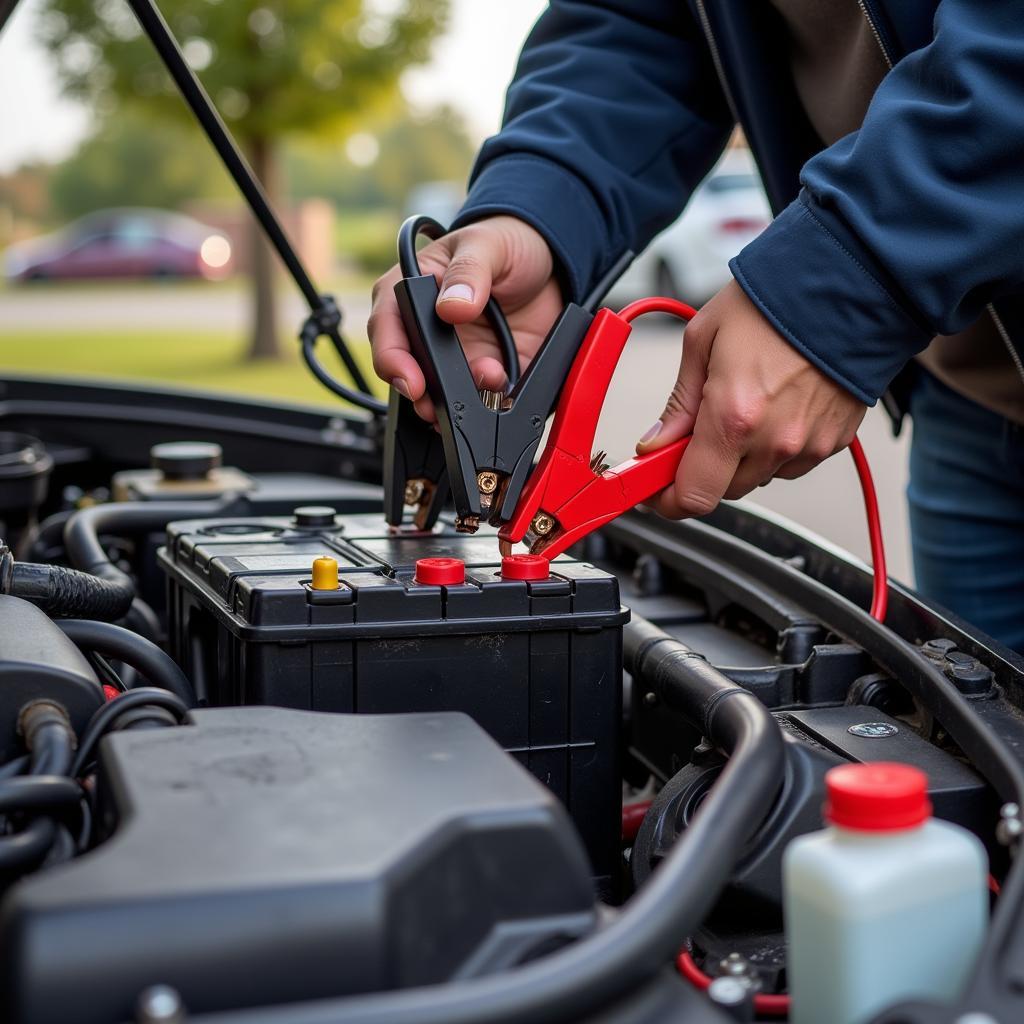Car troubles? You’re not alone. Most common car problems range from minor annoyances to major malfunctions. This guide will equip you with the knowledge to diagnose and potentially fix some of these issues yourself, saving you time and money.
Understanding common car problems can empower you to address minor issues before they escalate into costly repairs. Regular maintenance is key, but knowing how to troubleshoot common problems can be a lifesaver. One common issue involves car visors malfunctioning. Learn more about problems with car visors and how to fix them.
Warning Lights: Deciphering the Dashboard
Those illuminated symbols on your dashboard are your car’s way of communicating. Ignoring them is like ignoring a flashing “help” sign. From the check engine light to the oil pressure warning, understanding these signals is crucial.
-
Check Engine Light: This ubiquitous light can indicate a range of issues, from a loose gas cap to a serious engine problem. Use an OBD-II scanner to pinpoint the specific code triggering the light.
-
Oil Pressure Warning: This light signals low oil pressure, a serious issue that can damage your engine. Stop driving immediately and check your oil level.
-
Battery Light: This indicates a problem with the charging system, possibly a failing alternator. See if you can identify any alternator problems with your car.
-
Brake Warning Light: This light can mean low brake fluid, worn brake pads, or a problem with the ABS system. Get your brakes inspected immediately.
Starting Problems: When Your Car Won’t Turn Over
A car that refuses to start can be incredibly frustrating. Several issues can cause this, including a dead battery, a faulty starter, or even a problem with the ignition system.
-
Check the Battery: A dead battery is often the culprit. Try jump-starting your car. If it starts, your battery likely needs replacing.
-
Inspect the Starter: A clicking sound when you turn the key can indicate a faulty starter.
-
Examine the Ignition System: If the starter and battery are fine, the problem could lie in the ignition system.
Many car enthusiasts modify their vehicles by lowering the suspension, commonly known as “bagging.” While aesthetically pleasing, this modification can introduce its own set of challenges. Learn more about bagged car problems to understand the potential issues.
 Jump Starting a Car with a Dead Battery
Jump Starting a Car with a Dead Battery
Strange Noises: Listening to Your Car’s Complaints
Unusual noises coming from your car are often a sign of trouble. From squeaks and rattles to grinding and knocking, these sounds can help you pinpoint the source of the problem.
-
Squealing Brakes: This usually indicates worn brake pads.
-
Knocking from the Engine: This can be a sign of a serious engine problem, such as worn bearings.
-
Grinding Gears: This can point to a transmission issue.
Car lifts are essential tools for any serious car enthusiast or professional mechanic. However, like any equipment, they can experience problems. Understanding potential issues with specific brands is important. Explore some problems with Revolution brand car lifts to learn more.
Fluid Leaks: Spotting the Telltale Signs
Leaks are a clear indication of a problem. Different colored fluids can help identify the source.
-
Brown or Black Fluid: Often indicates an oil leak.
-
Green or Yellow Fluid: Usually signifies a coolant leak.
-
Red Fluid: Points to a transmission fluid or power steering fluid leak.
Golf carts, like any vehicle, require regular maintenance. Charging problems can be a common issue, especially in older models. Discover more about common 99 Club Car charging problems and how to address them.
Most Common Car Problems: A Quick Recap
From dashboard warning lights to fluid leaks, understanding the most common car problems is crucial for every car owner. Remember, regular maintenance is the best way to prevent these issues from occurring in the first place.
“Regular maintenance is like brushing your teeth for your car. It prevents small problems from turning into cavities,” says John Smith, Certified Automotive Technician. Addressing minor issues early on can save you a lot of money and headaches down the road.
Conclusion
Dealing with most common car problems can be daunting, but armed with the knowledge provided in this guide, you’ll be better equipped to tackle these challenges head-on. While some issues may require professional attention, understanding the basics of car maintenance can empower you to address minor problems and prevent major malfunctions. Remember, preventative maintenance is key to a long and healthy life for your vehicle.
“Don’t wait for your car to break down before you take action,” advises Jane Doe, Automotive Engineer at a leading car manufacturer. “Regular checks and timely maintenance are the best ways to keep your car running smoothly.” For further assistance or if you encounter complex issues beyond your expertise, feel free to connect with us.
Contact AutoTipPro at +1 (641) 206-8880 or visit our office at 500 N St Mary’s St, San Antonio, TX 78205, United States.
 Car Maintenance Checklist
Car Maintenance Checklist
FAQ
-
What should I do if my check engine light comes on? Use an OBD-II scanner to retrieve the trouble code and identify the problem.
-
How often should I change my oil? Consult your owner’s manual for the recommended oil change interval.
-
What are the signs of a bad alternator? Dimming headlights, flickering dashboard lights, and a dead battery can be signs of a failing alternator.
-
Why is my car making a grinding noise when I shift gears? This could indicate a problem with your transmission.
-
What should I do if I see a fluid leak under my car? Identify the color of the fluid and consult a mechanic to determine the source of the leak.
-
How can I prevent most common car problems? Regular maintenance, including fluid checks, tire rotations, and brake inspections, is the best way to prevent common car problems.
-
What is the importance of checking tire pressure? Proper tire pressure ensures optimal fuel efficiency, handling, and tire lifespan.




Leave a Reply